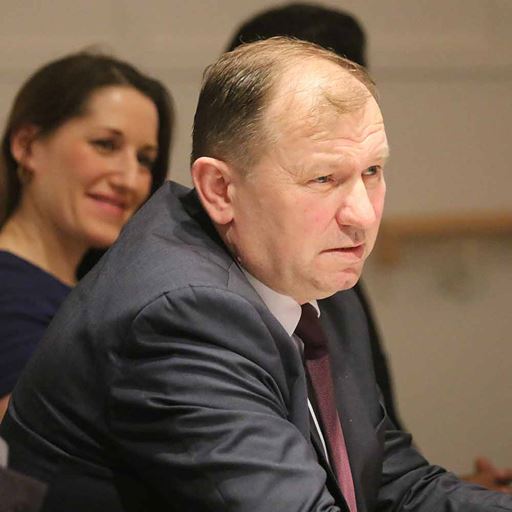Further funding supports UN partnership
-
Date
Fri 8 Feb 19

An Essex expert on health and human rights has been awarded funding to further the rapidly evolving global debate on human rights and mental health.
The grant enables Julie Hannah, from the School of Law, to continue vital work supporting the United Nations Special Rapporteur on the Right to Health, Dr Dainius Pūras, who is advocating for a rights-based approach to mental health care, support and promotion.
Julie has supported Dr Pūras in an advisory role since 2015, undertaking research, helping draft UN reports, building networks and co-authoring publications. This further funding, awarded by the Open Society Foundations' Mental Health and Rights Unit, secures the partnership for the remaining two years of his mandate.
“States have an obligation to dedicate maximum available resources to mental health yet, globally, mental health represents under 10% of spending on health,” said Julie, who has led a range of high-impact research projects as Co-Director of the Essex-based International Centre on Human Rights and Drug Policy since 2014.
“While a growing global consensus has emerged that there is a grossly unmet need for rights-based mental health care and support, the global debate is very active on how investments should be directed.
“We believe the dominance of the biomedical approach to mental health, which focuses on beds, hospitals, and medicines, has failed.
“A human rights-based approach that respects and engages at the community level but which also influences policy will enable the participation of people facing enormous structural challenges from growing inequalities to rising authoritarian forces and xenophobia,” she explained.
“Through this lens, we can begin to see more clearly what produces poor mental health and shift the global conversation from individual pathology to understanding people and the external constraints that affect everyone’s well-being.
“The right to health is a tool to support the evolving global conversation and Dr Pūras has a high-level platform to shape that discussion at the global and local policy levels.”
As well as continuing to support Dr Pūras’ research and reporting, Julie will help produce academic papers with the aim of securing a legacy that ensures mental health remains central to the UN mandate, and to create a more diverse set of references for advocates and governments.
“It’s likely that Dr Pūras’ successor will not have expertise in mental health so it’s crucial that we concretise what has been achieved since 2014 to ensure mental health remains a priority in the way the next UN Special Rapporteur assesses and monitors states’ compliance with the right to health,” Julie added.




